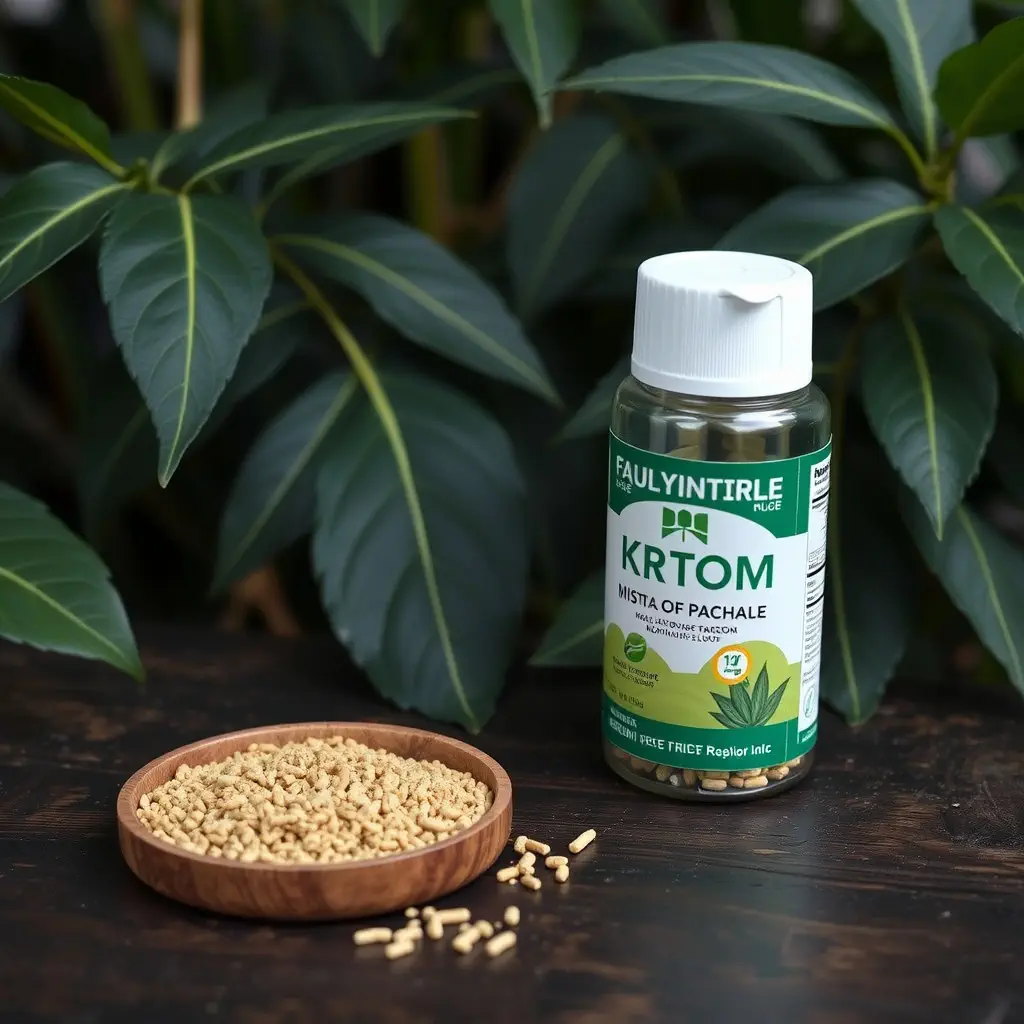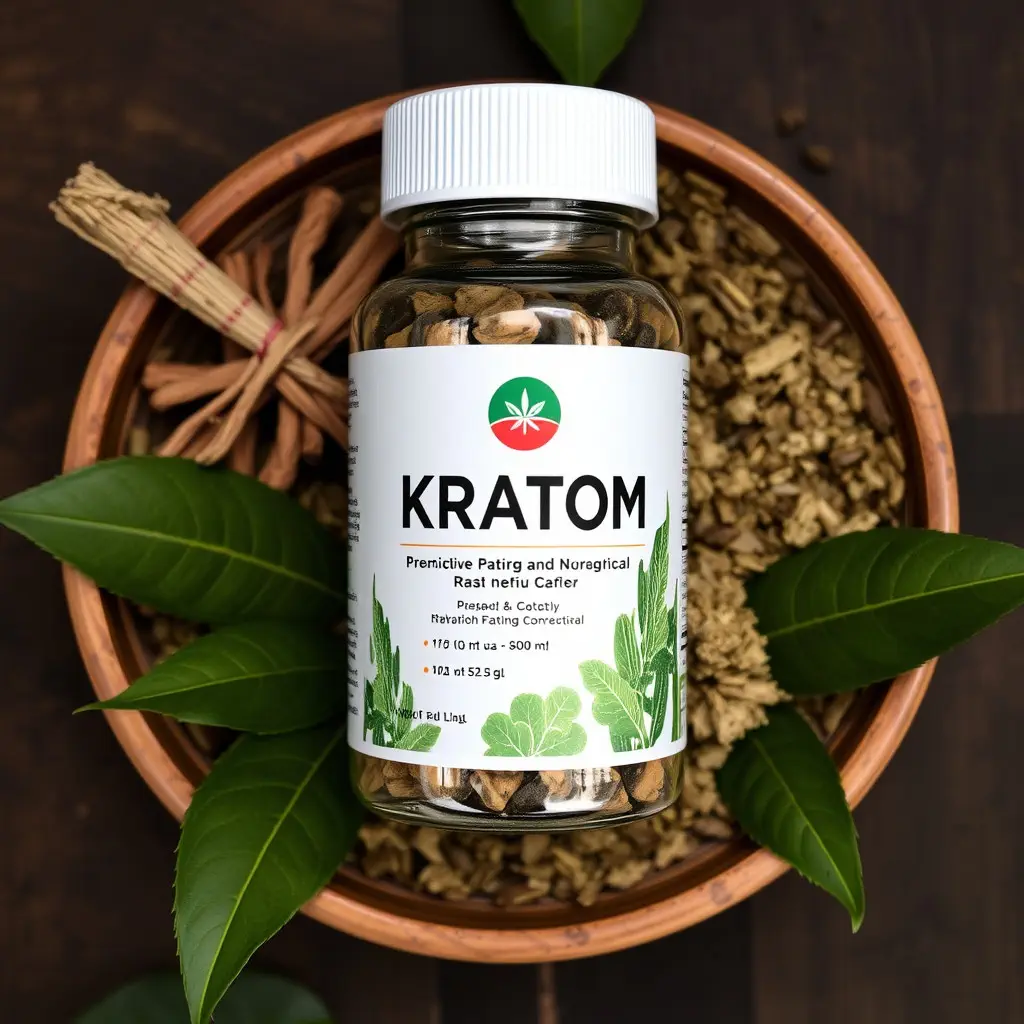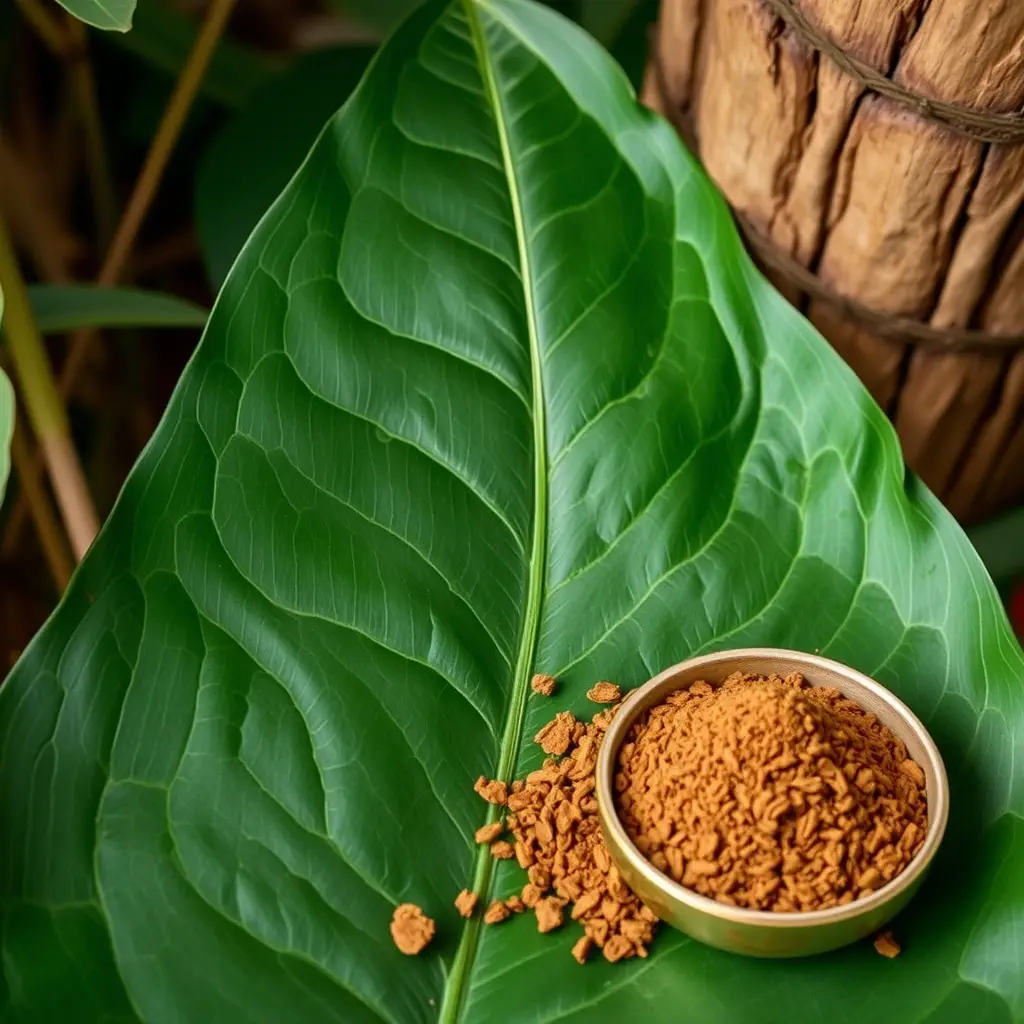Chronic pain management involves a complex interplay of treatments, including medications and alternative therapies like magnesium supplementation and kratom use. Magnesium, vital for numerous biological processes, plays a significant role in managing chronic pain by influencing nerve function and muscle relaxation. A deficiency in magnesium can exacerbate chronic pain conditions. Kratom, derived from Mitragyna speciosa leaves, has analgesic properties due to its alkaloids interacting with opioid receptors in the brain, offering potential relief for chronic pain. The combination of kratom with magnesium supplementation is under investigation for its synergistic effects and may improve pain relief while addressing any underlying magnesium deficiencies that could aggravate pain sensitivity. It's crucial to consult healthcare professionals before incorporating these treatments into a pain management plan, as individual responses and the quality of kratom can significantly affect outcomes. This holistic approach considers both the potential benefits of dietary interventions like magnesium and the careful use of botanical supplements such as kratom under professional guidance to enhance overall treatment effectiveness and safety.
Chronic pain is a pervasive challenge, often defying conventional treatment approaches. This article delves into innovative management strategies, with a particular focus on the roles of magnesium and kratom. We explore how these substances can complement each other for enhanced pain relief. By understanding the interplay between chronic pain, magnesium deficiency, and kratom’s alkaloid profile, readers will gain insights into integrating these elements for effective pain management. Join us as we navigate the complexities of using magnesium and kratom together to potentially improve quality of life for those suffering from persistent pain.
- Understanding Chronic Pain and the Role of Magnesium in Management
- Exploring Kratom as a Complementary Therapy for Chronic Pain Relief
- Integrating Magnesium with Kratom for Enhanced Pain Management Strategies
Understanding Chronic Pain and the Role of Magnesium in Management

Chronic pain is a pervasive challenge that affects millions worldwide, often leading to diminished quality of life and increased reliance on pharmaceutical interventions. This persistent pain, which can last beyond the normal healing time, may stem from various conditions such as arthritis, fibromyalgia, nerve damage, or even chronic headaches. Understanding chronic pain involves recognizing its multifaceted nature, including its biological, psychological, and social dimensions. In this context, magnesium emerges as a vital nutrient that may play a significant role in the management of chronic pain. Magnesium is an essential mineral involved in numerous biochemical reactions within the body, and its deficiency has been linked to an array of health issues, including muscle cramps, migraines, and inflammatory responses.
The relationship between magnesium and pain perception is complex but compelling. Studies suggest that adequate levels of magnesium are crucial for maintaining nerve function, muscle relaxation, and the production of energy in cells. A deficiency can lead to an increased sensitivity to pain, exacerbating chronic pain conditions. In this regard, kratom, a botanical supplement derived from the leaves of Mitragyna speciosa, has garnered attention for its potential role in managing chronic pain. Kratom contains alkaloids that may interact with opioid receptors in the brain, providing analgesic effects. While more research is needed to fully understand the efficacy and safety profile of kratom for chronic pain management, initial findings are promising. When considering the use of kratom as a supplementary measure, it is essential to consult healthcare professionals to ensure safe practices and to address any underlying magnesium deficiencies that may contribute to persistent pain symptoms.
Exploring Kratom as a Complementary Therapy for Chronic Pain Relief

Mitigating chronic pain often involves a multifaceted approach, where traditional medications may be complemented by alternative therapies. Kratom, derived from the leaves of the Mitragyna speciosa tree, has emerged as one such option that warrants careful consideration in pain management strategies. Its efficacy in managing chronic pain is attributed to its alkaloid content, including mitragynine and 7-hydroxymitragynine, which interact with opioid receptors in the brain. For individuals experiencing persistent discomfort, kratom may offer a modulatory effect that can either reduce or enhance the analgesic action of other treatments. Additionally, the synergistic potential of kratom when combined with supplements like magnesium is an area of growing interest among practitioners and patients alike. Magnesium, vital for over three hundred biochemical reactions in the body, plays a role in pain perception and muscle function, which can be impaired in chronic pain conditions. By incorporating kratom into a comprehensive treatment plan that includes magnesium supplementation, individuals may experience improved pain relief outcomes while also addressing any deficiencies in magnesium levels that could exacerbate their condition. It is crucial for those considering kratom as a complementary therapy to consult with healthcare professionals to navigate its safe and effective use, given the complexities of chronic pain and the individual differences in response to treatments.
Integrating Magnesium with Kratom for Enhanced Pain Management Strategies

Incorporating magnesium into chronic pain management strategies in conjunction with kratom can offer a synergistic effect that may enhance overall pain relief. Magnesium, an essential mineral, plays a critical role in numerous biochemical reactions within the body, including those affecting muscle and nerve function. Its presence is vital for maintaining proper electrolyte balance, which can influence how well kratom alkaloids interact with the opioid receptors in the brain and spine to modulate pain signals. Preliminary research suggests that a deficiency in magnesium can exacerbate pain conditions, making it imperative for individuals using kratom as part of their pain management regimen to consider their magnesium intake. By supplementing with magnesium, users may experience not only improved pain control but also additional health benefits such as better sleep quality, reduced anxiety, and support for cardiovascular health. This dual approach can potentially mitigate some of the side effects associated with long-term kratom use and provide a more holistic solution for managing chronic pain.
When integrating magnesium with kratom, it is important to approach this combination with caution. The optimal dosing for both substances can vary greatly from person to person, and interactions between supplements and herbal remedies should always be considered. Users are advised to consult with a healthcare provider before making any changes to their pain management plan, especially when incorporating new supplements like magnesium. Monitoring one’s response to this combination is crucial, as individual sensitivity to both kratom and magnesium can affect the outcome of pain relief. Adjustments may be necessary to achieve the desired therapeutic effect while minimizing potential adverse effects. It is also essential to source high-quality kratom from reputable vendors to ensure safety and efficacy, as the purity and alkaloid content can influence its effectiveness when combined with magnesium supplementation.
In conclusion, chronic pain management presents unique challenges that can be significantly alleviated through a comprehensive approach. The role of magnesium in pain relief, often overlooked, has been highlighted as a critical component in managing such conditions effectively. Complementary therapies, particularly kratom, have shown potential in providing relief for those suffering from chronic pain. By integrating these two strategies, individuals may experience improved outcomes without relying solely on traditional pharmaceuticals. It is advisable for those considering this approach to consult healthcare professionals to ensure safe and effective use of both magnesium and kratom in their pain management regimen. With careful consideration and professional guidance, these natural alternatives can be valuable tools in the journey toward pain relief and an enhanced quality of life.






